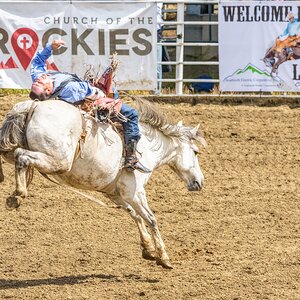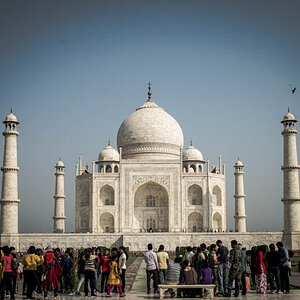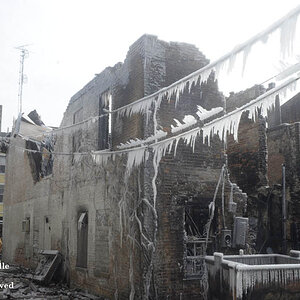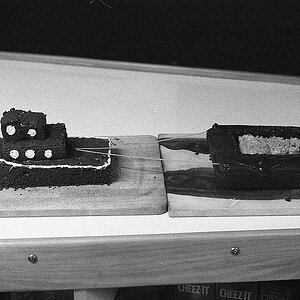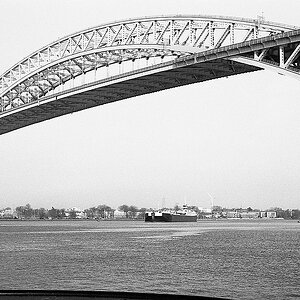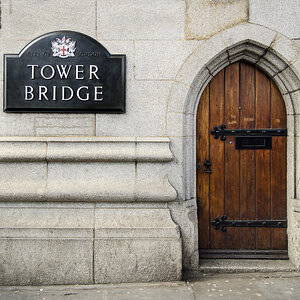AlanKlein
Been spending a lot of time on here!
- Joined
- Nov 24, 2011
- Messages
- 2,265
- Reaction score
- 816
- Location
- NJ formerly NYC
- Website
- www.flickr.com
Every field has been affected in some way, some more than others. It comes down to what people perceive to be the easiest to do, which in reality are some of the hardest areas, sports and weddings. I exclude the high fashion, products, food, that area which requires a lot more gear and a different skill set, working with more complicated lighting setups etc. People like the idea of weddings as it's an easy way to make big money quickly, it is also a quick way to screw up a photo shoot that leaves very little room for mistakes. Shooting sports, because there are so many different levels is easier but becomes more difficult as you more up the levels. The weekend photographers that shoot kids sports generally can come away with some nice pictures of their kids, some do basic setups for team pictures, it's not difficult if they have a basic understanding of the camera. Once you move into shooting at the college and professional levels there is no room for mistakes, everything moves faster working around more photographers, bigger players, the level of knowledge changes. In other areas where they may have been only a few good photographers working in a smaller city doing all the portraits, weddings etc, and doing quick well, have now found that there are now 100 willing to shoot for less. They can change how they market themselves, adapt to the changes in technology but in the end they are still having to compete against 100 new photographers, even if 90 of them are hacks, that still leaves 10 good enough to do the job well, this is where the competition begins.
I get where your coming from - I'm not a pro photographer, never had a desire to become one, and am quite happy with my amateur status. For me it's a hobby, not a career. But I spend a good many years in the IT field. At first if you had the knowledge you were fairly coveted - then pretty soon everybody and their brother it seemed was hanging out a shingle and charging a lot less. Granted a lot of them couldn't find their keesters in the dark with both hands, a flashlight and a map but it still had a pretty drastic impact on those of us who could.
The glut of folks who would fix your computer or build you a website or whatever for dirt cheap prices continued to increase, and while it was bad enough that they made you do a whole ton of extra work trying to market yourself and explain to people that if they wanted quality work they really needed to spend the extra, what was worse is the effect they had on the market as a whole. Pretty soon it got to the point where telling people you were a computer tech or consultant or whatever term you wanted to use got to be almost akin to telling them you were a sleazy used car salesmen, or a con artist of some sort.
Folks got so gun shy after paying 2, 3, or maybe 5 other completely unreliable know nothing amateurs representing themselves as pros that they just absolutely would not believe that you were a professional and wouldn't do the same thing to them that the other guys had done. It took a ridiculous amount of effort to establish a rapport and build the trust of the client to the point where you could get a halfway decent business relationship established, and all it took was for one thing to go wrong during that process, even if it wasn't your fault, and that relationship would be totally ruined at the outset. The clients for the most part had zero trust, and that's a pretty rough place to start from.
So yup, I get where your coming from. Unfortunately there just isn't anything that can be done about the cause, all you can try to do is deal with the end result.
The people who screwed up the Obamacare website got paid $500 million. Obviously not for what they knew but who. Selling yourself is 90% of business. The photos will take care of themselves.



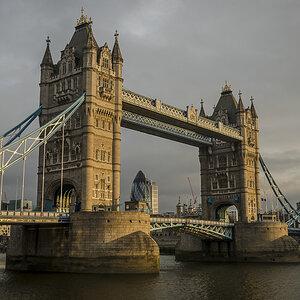
![[No title]](/data/xfmg/thumbnail/33/33359-a5cf76b8e843e82b3831650af6dfa6b3.jpg?1619735923)
![[No title]](/data/xfmg/thumbnail/37/37640-803bb25a4f46642289fe136733ddfbde.jpg?1619738159)
